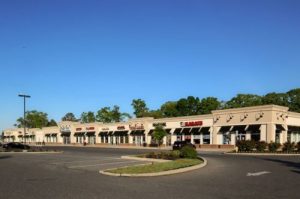 Wolf Commercial Real Estate, a leading South Jersey commercial real estate broker that specializes in South Jersey commercial real estate listings and services, is now offering premier South Jersey retail space as part of a mixed-use development opportunity at 1788 Route 38 Lumberton NJ.
Wolf Commercial Real Estate, a leading South Jersey commercial real estate broker that specializes in South Jersey commercial real estate listings and services, is now offering premier South Jersey retail space as part of a mixed-use development opportunity at 1788 Route 38 Lumberton NJ.
There are +/- 2,000-60,000 sf available at this South Jersey commercial retail space as part of a mixed-use development opportunity at 1788 Route 38 Lumberton NJ. This South Jersey commercial retail space as part of a mixed-use development opportunity through Wolf Commercial Real Estate, a South Jersey commercial real estate broker, has numerous pad sites available for lease and development.
This South Jersey retail space is ideal for local shopping, major retailers, and big-box grocers and retailers. Please call for more information about the lease price of this mixed-use development opportunity in South Jersey.
This property at 1788 Route 38 Lumberton NJ is immediately available for development. Wolf Commercial Real Estate, a South Jersey commercial real estate brokerage firm that specializes in South Jersey commercial real estate listings and services, has been appointed exclusive sales agent to market this South Jersey retail space.
This South Jersey retail space as part of a mixed-use development opportunity is located on Route 38, a major artery through the fast-growing Township of Lumberton. This South Jersey retail space at 1788 Route 38 Lumberton NJ will be adjacent to 90 single-family homes as well as 280 luxury apartments.
More than 52,000 people live within a five-mile radius of this retail space as part of a mixed-use development opportunity in South Jersey through Wolf Commercial Real Estate, a South Jersey commercial real estate brokerage firm that specializes in South Jersey commercial real estate listings and services. The median household income for people living within five miles of this retail space in South Jersey is $95,801.
There also are both pylon and store signage available at this retail space as part of a mixed-use development opportunity in South Jersey from Wolf Commercial Real Estate, a leading South Jersey commercial real estate broker.
For more information about this South Jersey commercial retail space as part of a mixed-use development opportunity at 1788 Route 38 Lumberton NJ or about any other South Jersey commercial properties for lease or sale, please contact Jason M. Wolf (856-857-6301; jason.wolf@wolfcre.com) or Christopher R. Henderson (856-857-6337; chris.henderson@wolfcre.com) at Wolf Commercial Real Estate, the foremost South Jersey commercial real estate brokerage firm.
Wolf Commercial Real Estate, a full-service CORFAC International brokerage and advisory firm, is a premier South Jersey commercial real estate broker that provides a full range of South Jersey commercial real estate listings and services, property management services, and marketing commercial offices, medical properties, industrial properties, land properties, retail buildings and other South Jersey commercial properties for buyers, tenants, investors and sellers. Please visit our websites for a full listing of South Jersey commercial properties for lease or sale through our South Jersey commercial real estate brokerage firm.


 Wolf Commercial Real Estate, a leading South Jersey commercial real estate brokerage firm with expertise in South Jersey commercial real estate listings and services, now has available premier South Jersey retail space for lease in the Diamond Plaza Shopping Center at 1390 Route 38 Hainesport NJ.
Wolf Commercial Real Estate, a leading South Jersey commercial real estate brokerage firm with expertise in South Jersey commercial real estate listings and services, now has available premier South Jersey retail space for lease in the Diamond Plaza Shopping Center at 1390 Route 38 Hainesport NJ. Wolf Commercial Real Estate, the foremost South Jersey commercial real estate broker that specializes in South Jersey commercial real estate listings and services, is now offering premier South Jersey retail space for lease at 270 North Delsea Drive Vineland NJ.
Wolf Commercial Real Estate, the foremost South Jersey commercial real estate broker that specializes in South Jersey commercial real estate listings and services, is now offering premier South Jersey retail space for lease at 270 North Delsea Drive Vineland NJ. Wolf Commercial Real Estate, a premier Southern New Jersey commercial real estate brokerage firm that specializes in South Jersey commercial real estate listings and services, now has available South Jersey retail space for lease at Kingsway Plaza Maple Shade NJ.
Wolf Commercial Real Estate, a premier Southern New Jersey commercial real estate brokerage firm that specializes in South Jersey commercial real estate listings and services, now has available South Jersey retail space for lease at Kingsway Plaza Maple Shade NJ. Wolf Commercial Real Estate, a leading South Jersey commercial real estate brokerage firm that specializes in South Jersey commercial real estate listings and services, now has available a sale opportunity for ownership of premier South Jersey retail space for sale in Maple Shade.
Wolf Commercial Real Estate, a leading South Jersey commercial real estate brokerage firm that specializes in South Jersey commercial real estate listings and services, now has available a sale opportunity for ownership of premier South Jersey retail space for sale in Maple Shade. Wolf Commercial Real Estate, a leading South Jersey commercial real estate brokerage firm with expertise in South Jersey commercial real estate listings and services, now has available premier South Jersey retail space for lease in the Crossroads Plaza at 843 Cooper Landing Road Cherry Hill NJ.
Wolf Commercial Real Estate, a leading South Jersey commercial real estate brokerage firm with expertise in South Jersey commercial real estate listings and services, now has available premier South Jersey retail space for lease in the Crossroads Plaza at 843 Cooper Landing Road Cherry Hill NJ. About 37,000 retailers, retail brokers, investors and other retail professionals doing business in U.S. and South Jersey retail real estate markets gathered recently in Las Vegas for RECon, the industry’s largest trade convention, amid a tangible sense of frustration.
About 37,000 retailers, retail brokers, investors and other retail professionals doing business in U.S. and South Jersey retail real estate markets gathered recently in Las Vegas for RECon, the industry’s largest trade convention, amid a tangible sense of frustration. Wolf Commercial Real Estate, the foremost South Jersey commercial real estate broker that specializes in South Jersey commercial real estate listings and services, now has available +/- 4,770 square feet prime end-cap South Jersey retail space for lease in The Crossings at Twin Oaks shopping center at 649-675 Berlin-Cross Keys Road Sicklerville NJ.
Wolf Commercial Real Estate, the foremost South Jersey commercial real estate broker that specializes in South Jersey commercial real estate listings and services, now has available +/- 4,770 square feet prime end-cap South Jersey retail space for lease in The Crossings at Twin Oaks shopping center at 649-675 Berlin-Cross Keys Road Sicklerville NJ.

